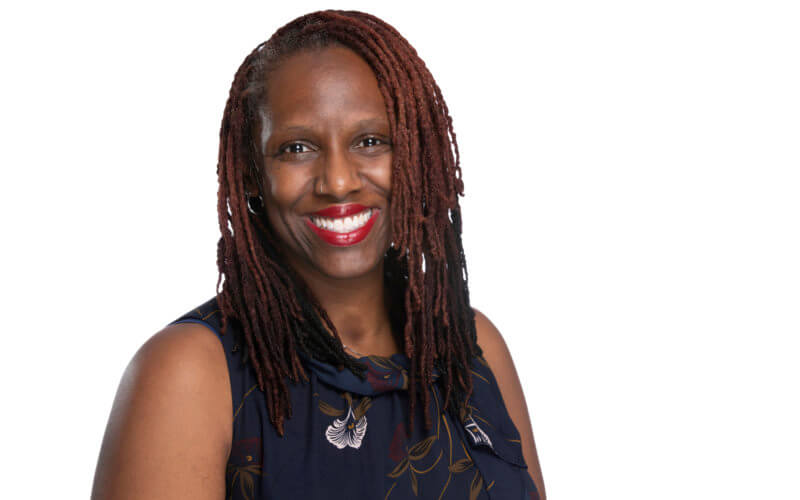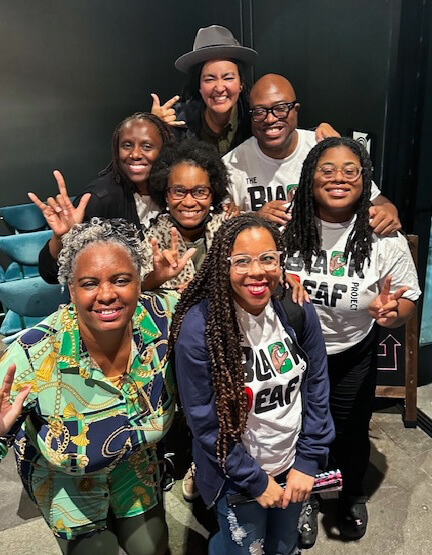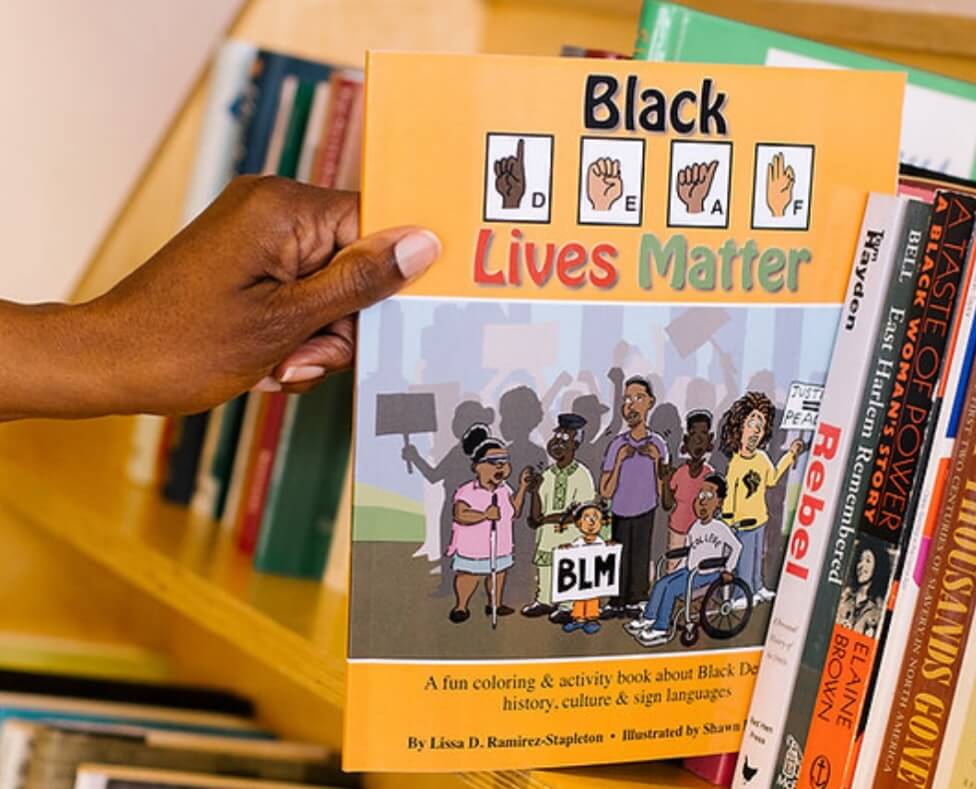
For Lissa Ramirez-Stapleton, Black Deaf lives matter.
Over the last decade, the Cal State Fullerton educator and author has advocated with and for Deaf students of color to ensure equity and access to education and how higher education institutions can better support these students.
Ramirez-Stapleton, associate professor of educational leadership, is researching the connections between Historically Black Colleges and Universities and Black Deaf education. For her study, she is interviewing Black Deaf alumni and current students who attend or have attended HBCUs since 2020.
Her research also examines the development of Black teacher preparation programs for Deaf education between 1920 and 1950. She is exploring the role space, place and time played in the relationship between Southern University A&M University, Hampton University and West Virginia State University in creating a master’s degree program in Deaf education for Black teachers.
“This work examines culturally rich Black educational spaces, why Deaf students and students with disabilities select HBCUs and how these universities can continue to improve services and uplift all Black students,” she said. “This is limited research in this area, but the possibilities are endless and important to Black higher education.”
As a high school student in Columbus, Ohio, Ramirez-Stapleton was introduced to the Deaf community at the Teen Institute leadership retreat — a defining moment that changed her life.
“Since then, I’ve learned a lot about my own hearing privilege,” she said. “To take that privilege and do something with it has been important and rewarding.”

Ramirez-Stapleton, a first-generation college graduate, earned a bachelor’s degree in social work at Wright State University and learned American Sign Language. She completed a master’s degree in college student personnel at the University of Dayton to work with Deaf and hard-of-hearing college students and the challenges they face in higher education, including audism and racism.
Through her work as a community director in residential life with Deaf college students at Cal State Northridge and international service with Deaf Jamaican and Ghanaian communities, she wanted to learn more about ways to support Deaf college students’ lives.
“I saw Deaf students of color dropping out of college because they did not have the support they needed,” said Ramirez-Stapleton. “I wanted to know how we improve services and resources for Deaf students of color.”
The National Deaf Center on Postsecondary Education reported in 2019 that only 11% of Black Deaf Californian students graduated with a bachelor’s degree, she said.
Ramirez-Stapleton earned a doctorate in education, with an emphasis in higher education and social justice, at Iowa State University. Her dissertation centered on the lived experiences of Deaf students of color and how they successfully navigated college and graduated.
After earning her doctorate in 2014, she became a faculty member in the Deaf Studies Department at Cal State Northridge. She joined CSUF’s College of Education last fall and teaches graduate-level courses in educational leadership.
Last year, Ramirez-Stapleton founded The Black Deaf Project, a Black Deaf and hearing educational nonprofit centered on Black culture and identity. The organization offers social justice workshops, educational materials, such as books, flashcards and history posters, and online resources for parents, teachers and community members.

The Black Deaf Project partners with Southern California Black Deaf Advocates, Center On Deafness Inland Empire-CODIE and the Civil Rights Institute of Inland Southern California to host free community programs.
As a result of her work with schools and community organizations, Ramirez-Stapleton self-published “Black Deaf Lives Matter: A Fun Coloring & Activity Book About Black Deaf Life, History, Culture & Sign Language.” A portion of the book’s proceeds benefit the Black Deaf community through educational programs.
“The book tells the stories of Deaf enslaved people to the Black Lives Matter movement,” she said, adding it is widely used in K-12 school settings in the region and country. “It offers students educational activities and tools to learn about social justice issues, Black Deaf role models and historical events.”